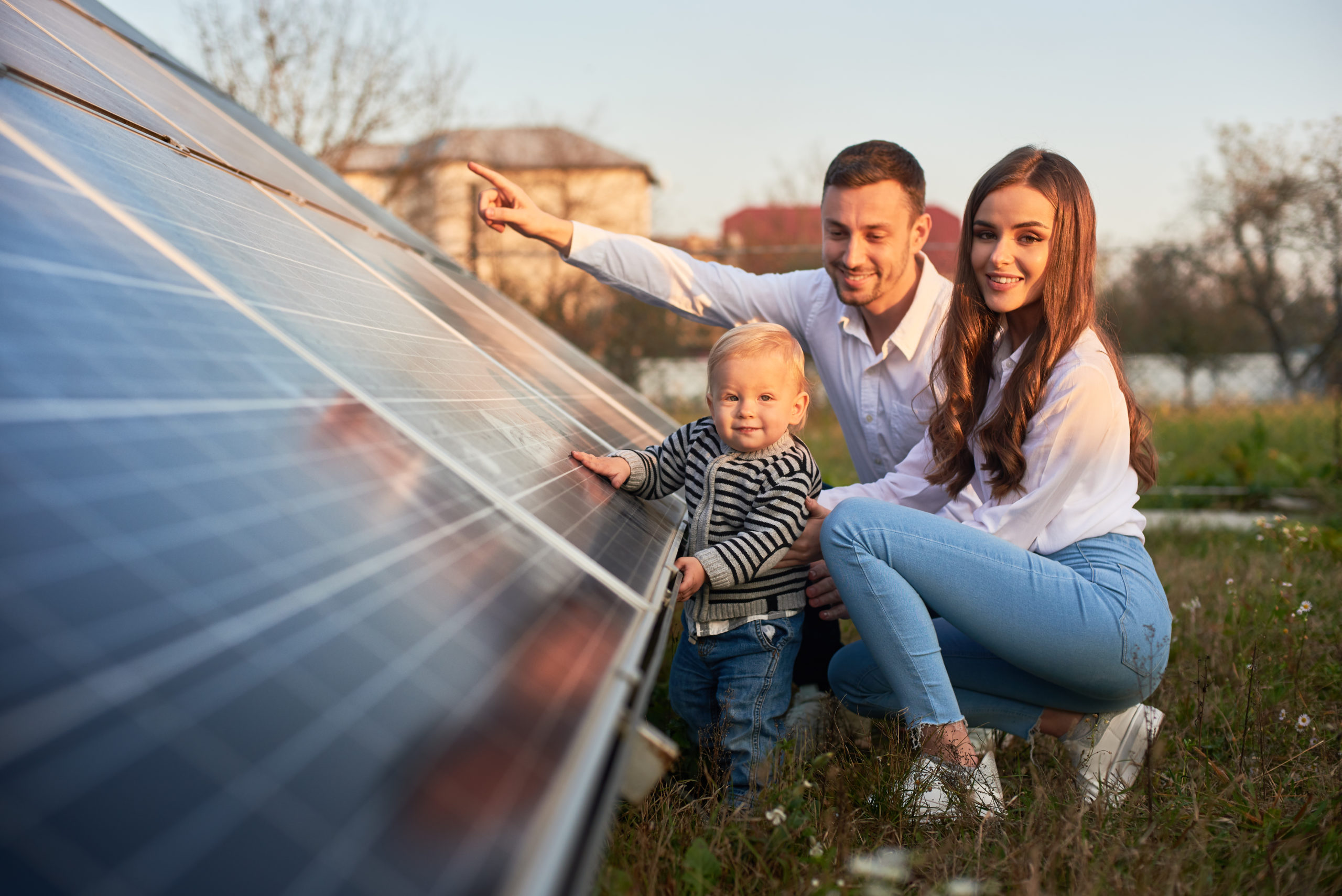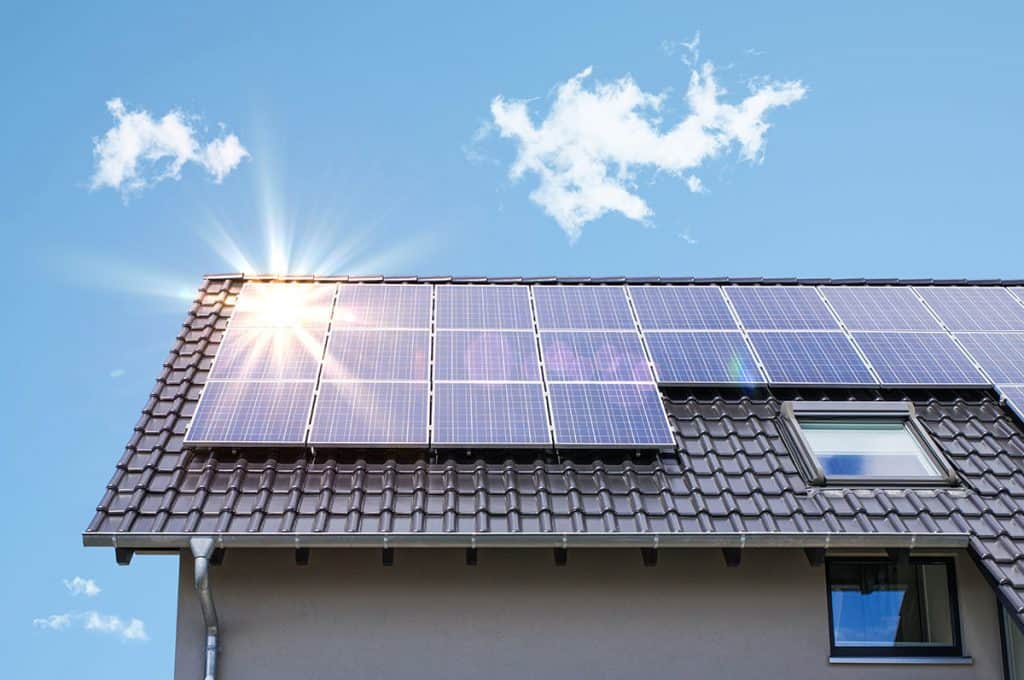The best time to install solar panels depends on a number of factors, such as the climate, your energy needs, and the type of system you want to install. However, in general, it is advisable to install solar panels during the spring or summer when there is more daylight and thus more potential for solar power generation.
If you’re thinking about installing solar panels, you might be wondering when the best time to do it is. The answer may depend on a few different factors, including the climate where you live and the type of solar panel system you’re considering.
In general, though, most experts agree that late spring or early summer is usually the best time to install solar panels.
This is because the sun is at its strongest during this time of year, so your panels will be able to generate more power. Additionally, this timeframe typically has fewer cloudy days than other seasons, which means your panels will have more opportunity to absorb sunlight.
Of course, there’s no hard and fast rule about when you should install solar panels.
If you’re interested in getting them installed as soon as possible, that’s perfectly fine! Just be sure to do your research and work with a reputable installer to ensure that everything goes smoothly.

Credit: raynorservices.com
What Month is Best for Solar Panels?
There is no definitive answer to this question as there are a number of factors that can affect the output of solar panels. That said, most experts agree that the best time to install solar panels is during the spring or summer months. This is because the sun is at its strongest during these times of year, meaning that your panels will be able to produce more electricity.
Additionally, installing your panels during these months will allow you to take advantage of daylight savings time, which means more sunlight hours for your panels to absorb.
Is 2022 a Good Year to Buy Solar Panels?
When it comes to solar panels, the earlier you buy them, the better. That’s because technology is constantly improving and becoming more efficient, so you’ll get more bang for your buck if you buy sooner rather than later. With that said, 2022 is shaping up to be a great year to buy solar panels.
Here’s why: First, the cost of solar panels has been falling steadily for years and is expected to continue doing so. In fact, prices are projected to drop by another 30% in 2022. This means that you’ll be able to get more power for your money.
Second, there are a number of new incentives and rebates available for those who go solar in 2022. For example, the federal government offers a tax credit worth 26% of the cost of your system (up from 22% in 2021). There are also many state and local incentives available, so be sure to do your research before deciding whether or not going solar is right for you.
Third, with interest rates at historic lows, now is a great time to finance your solar panel purchase. You can get a loan with a very low interest rate and pay off your system over time without breaking the bank.
All things considered, if you’re thinking about going solar, 2022 is shaping up to be an excellent year to do it.
Thanks for reading!
Can Solar Panels Be Installed in Winter?
Yes, solar panels can be installed in winter, but there are a few things to keep in mind. First, the days are shorter in winter, so you won’t get as much sunlight. Second, snow and ice can build up on the panels and reduce their efficiency.
So it’s important to have a plan for keeping the panels clean and clear of debris. Third, cold weather can make some solar panel components less efficient. So it’s important to choose a high-quality solar panel that is designed for cold weather conditions.
At What Time are Solar Panels Most Efficient?
Solar panels are most efficient when they are directly facing the sun. This means that they are most efficient during the daytime, when the sun is out and shining. However, solar panels can also be somewhat efficient at night, if they are placed in a location where they will receive some direct moonlight.
2022 is the BEST TIME to Install Solar Panels!
How Many Years to Break Even on Solar Panels
Homeowners who install solar panels can expect to see a return on their investment in as little as five to seven years. That’s an impressive payback period, especially when you compare it to the 25-year lifespan of most solar panel systems.
Of course, the length of time it takes to break even on your solar panels depends on a number of factors, including:
The cost of the system: The upfront cost of a solar panel system is the biggest barrier for many homeowners. But with prices falling and financing options becoming more available, that initial investment is becoming more manageable. In some cases, homeowners can lease or finance their solar panel system, which can further reduce the payback period.
Solar incentives: Many states offer incentives that can significantly offset the cost of going solar. These incentives include tax credits, rebates and performance-based payments (such as SRECs).
Electricity rates: The amount you save on your electric bill each month will depend largely on how much you pay for electricity in your area.
In general, homes in states with high electricity rates will see a greater financial benefit from installing solar panels.
Solar panel efficiency: The efficiency of your solar panels also plays a role in how quickly you’ll see a return on your investment. More efficient panels will produce more electricity and generate greater savings over time.
Will Solar Panel Prices Go down
As the demand for solar panels increases, manufacturers are working hard to find ways to reduce the cost of production. Some experts believe that solar panel prices will continue to drop in the coming years, making this renewable energy source more affordable for homeowners and businesses.
Several factors are driving down the price of solar panels.
First, there is an increase in competition among manufacturers. As more companies enter the market, they are eager to undercut their rivals and offer lower prices. Second, advancements in technology are helping to reduce production costs.
Newer methods and materials are making it possible to produce solar panels more efficiently.
These trends suggest that solar panel prices will continue to decline in the future, making this clean energy source increasingly accessible. Homeowners and businesses should consider investing in solar now to take advantage of these low prices.
Cost of Solar Over the Years
The cost of solar panels has fallen dramatically over the last few years, making them a much more attractive option for homeowners and businesses alike. In 2010, the average cost of a solar panel was around $3 per watt. Today, that same panel costs less than $1 per watt.
This decrease in price is due to advancements in technology and an increase in competition among manufacturers.
As the cost of solar panels continues to fall, the number of installations is expected to rise sharply. In 2010, there were just over 1,000 megawatts (MW) of solar photovoltaic (PV) capacity installed in the United States.
By 2016, that figure had grown to nearly 16,000 MW. And by 2022, it’s expected to reach 100,000 MW. This growth is being driven by declining prices and state and federal incentives that make going solar more affordable than ever before.
Solar PV is not only becoming more affordable; it’s also becoming more efficient. The average efficiency of solar panels has increased from 6 percent in 2010 to 15 percent today. This means that a given panel can produce more electricity with less sunlight than ever before.
Solar Panels Worth It 2022
Are Solar Panels Worth It in 2022?
The simple answer is yes. Solar panels are worth it in terms of both saving you money on your energy bill and helping to save the environment.
In terms of finances, solar panels will save you money in the long run. The initial investment may be higher than simply signing up with your local utility company, but over time, you will see a return on your investment through lower energy bills. In some cases, installing solar panels can even make you money through government incentives and programs like net metering.
And as electricity rates continue to rise, solar panel savings will only become more significant.
Environmental concerns are another reason why solar panels are worth it. Burning fossil fuels for energy releases harmful greenhouse gases into the atmosphere, contributing to climate change.
Solar power is a clean and renewable energy source that doesn’t produce pollution or emit carbon dioxide. By switching to solar, you can do your part to help reduce dependence on fossil fuels and combat climate change.
Conclusion
The best time to install solar panels is during the spring and summer months. This is because the sun is at its strongest during these months, providing the most power for your solar panels. Additionally, installing solar panels during these months can help you save money on your energy bills.



